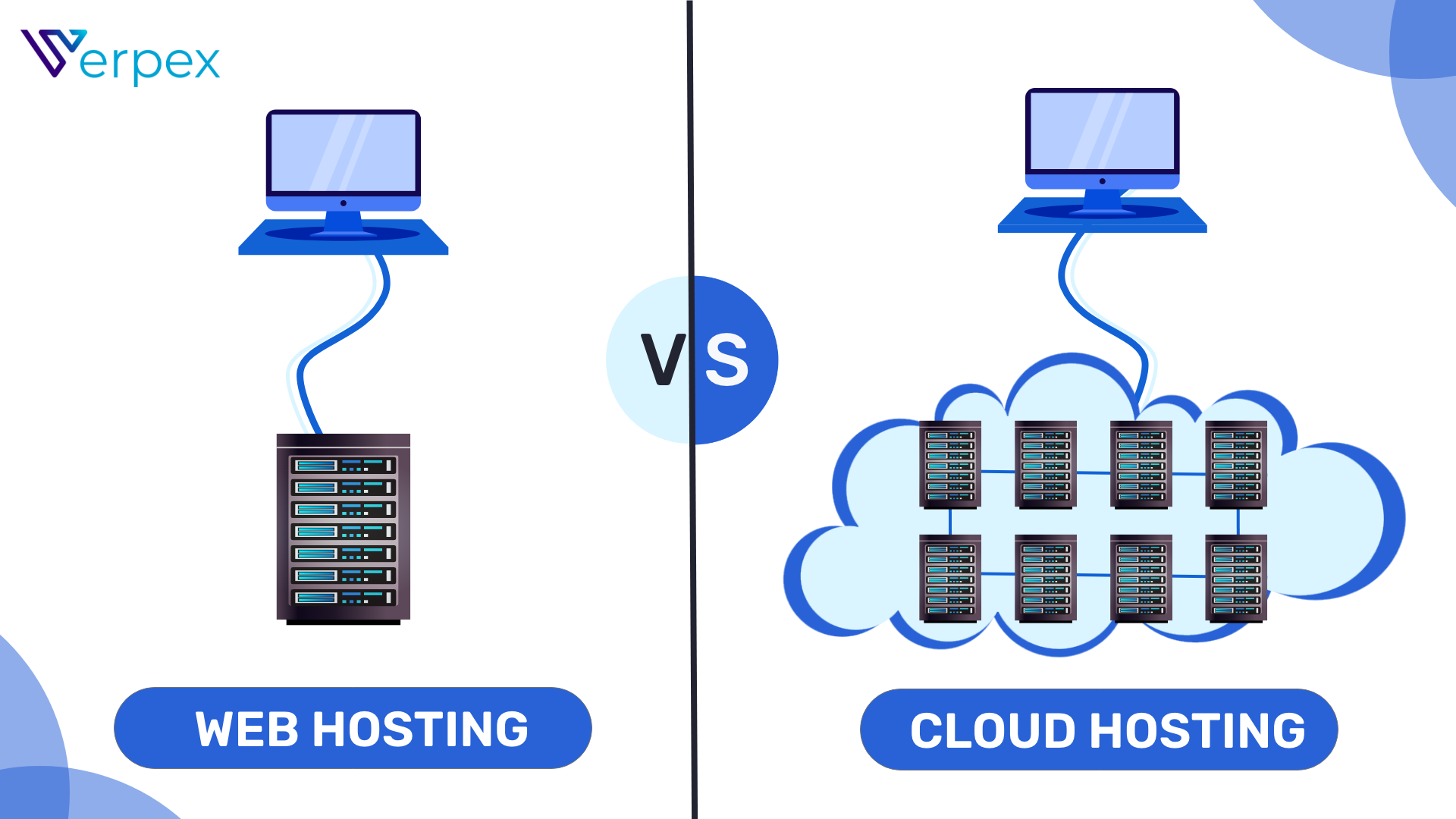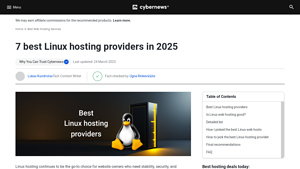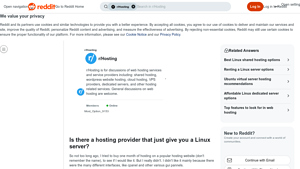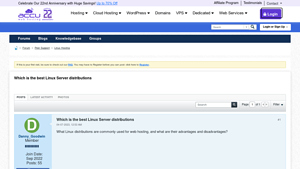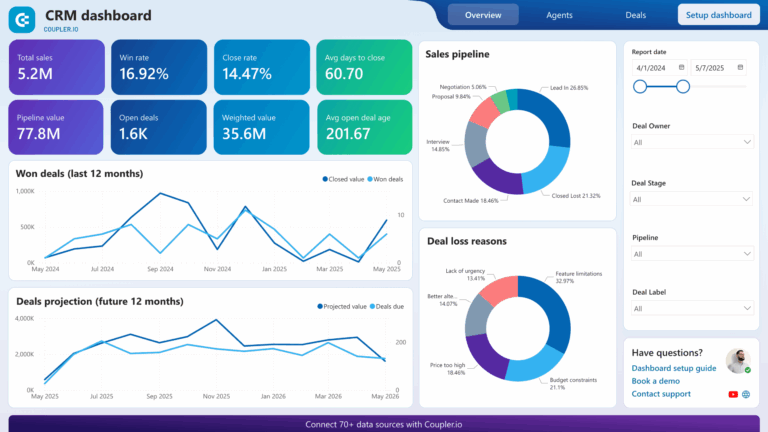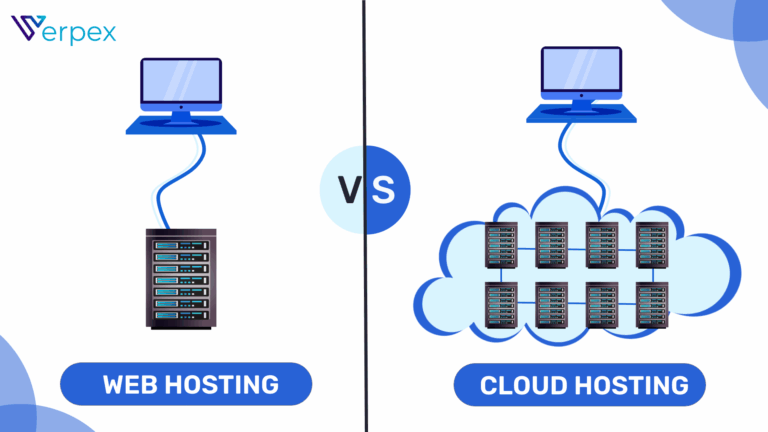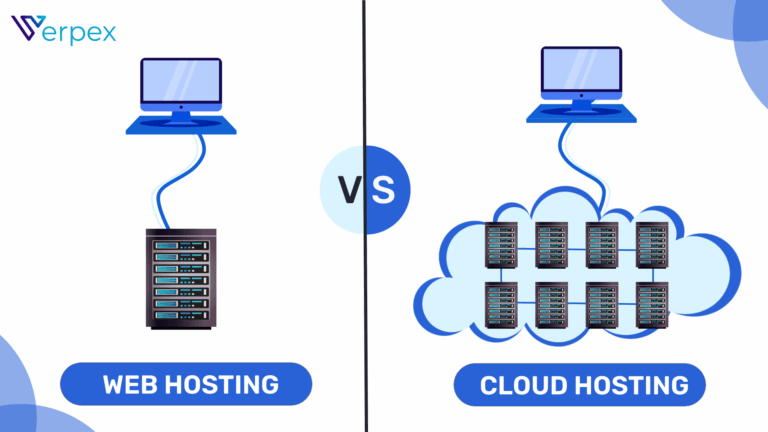The 7 Best Linux Hosting Services of 2025
Choosing Your Digital Home: An Introduction to Web Hosting
Choosing the right web hosting is a critical foundation for any successful website. Whether you are a small business owner, a blogger, or a developer, the hosting service you select can significantly impact your site’s performance, security, and scalability. With an overwhelming number of options available, each boasting different features, pricing models, and technical specifications, it’s common for users to feel confused and uncertain about which hosting provider to choose.
Web hosting is essentially the service that allows your website to be accessible on the internet. Think of it as your website’s digital home, where all its files, databases, and content reside. A reliable hosting provider ensures that your website is always live, loads quickly, and can handle traffic efficiently. However, the myriad of choices, including shared, VPS, dedicated, and cloud hosting, can make it difficult to determine which type suits your needs best.
This guide aims to serve as a comprehensive resource for understanding the various types of web hosting available, comparing top providers, and ultimately making an informed choice that aligns with your specific requirements. We will break down the essential features of different hosting types, discuss the advantages and disadvantages of each, and provide insights into the most reputable hosting providers in the industry.
Understanding Hosting Types
In this guide, we will explore the main types of web hosting: shared, VPS (Virtual Private Server), dedicated, and cloud hosting. Each type has its unique characteristics, benefits, and limitations, making it crucial to identify which aligns best with your goals.
Comparing Top Providers
Not all hosting providers are created equal. We will compare various top-tier hosting companies based on performance, pricing, customer support, and additional features. This will help you identify which providers stand out in the crowded market and meet your specific needs.
Making an Informed Choice
Finally, we will guide you through the decision-making process, helping you weigh the factors that matter most to you. Whether it’s budget constraints, technical requirements, or the level of customer support, our goal is to help you find the ideal hosting service that will empower your online presence.
By the end of this guide, you will have a clearer understanding of web hosting and be equipped to choose the best digital home for your website. Let’s get started on this journey to finding the right hosting solution for you!
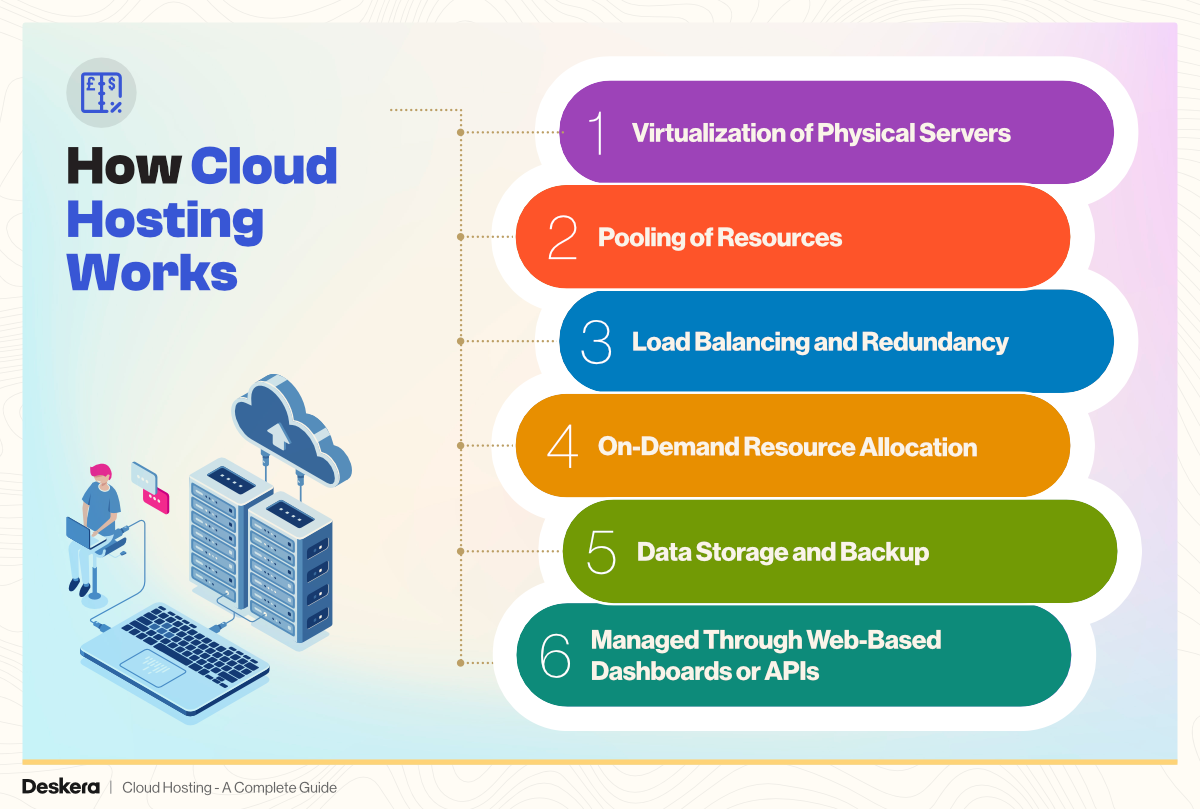
The Best Linux Hosting Providers of 2025
7. A2 Hosting – Fastest Linux Performance!
In the review article “7 Best Linux Web Hosting for 2025,” Cybernews highlights Hostinger as the top choice for Linux hosting, praised for its affordability and reliable performance. Ideal for budget-conscious users and small to medium-sized businesses, Hostinger offers a robust platform that balances cost and quality, making it an excellent option for those seeking efficient web hosting solutions without breaking the bank.
- Website: cybernews.com
- Company Age: Approx. 28 years (domain registered in 1997)
5. Pure Linux Hosting – Perfect for Developers!
In a Reddit discussion about hosting providers offering dedicated Linux servers, Akamai Cloud (formerly Linode) emerges as a favored option. Users appreciate its reasonable transfer allocations and straightforward pricing structure, which avoids unexpected charges commonly associated with larger providers like AWS. This makes it an attractive choice for developers and businesses seeking reliable, cost-effective Linux hosting solutions without hidden fees.
- Website: reddit.com
- Company Age: Approx. 20 years (domain registered in 2005)
5. DigitalOcean – Power and Flexibility for Developers!
DigitalOcean offers robust Linux hosting tailored for developers and businesses seeking straightforward, cost-effective virtual machines. With a focus on reliability and performance, it provides scalable resources that cater to various project needs, making it an ideal choice for those looking to deploy applications quickly and efficiently. Its user-friendly interface and extensive documentation further enhance the experience for both novice and experienced users.
- Website: digitalocean.com
- Company Age: Approx. 25 years (domain registered in 2000)
7. RoseHosting – Unbeatable Value in Managed Linux Hosting!
RoseHosting offers 100% managed Linux hosting services, making it an ideal choice for users seeking reliable performance and ease of use. With blazing-fast NVMe servers, customers can expect enhanced speed and efficiency for their websites. This hosting solution is particularly well-suited for those looking for a hassle-free experience, as it includes comprehensive management features, ensuring that users can focus on their content without worrying about server maintenance.
- Website: rosehosting.com
- Company Age: Approx. 24 years (domain registered in 2001)
5. DigitalOcean – Unmatched Performance for Developers
In our comprehensive review of the Best Linux VPS Hosting of 2025, we evaluate top providers such as Hostinger, Kamatera, and LiquidWeb, focusing on their performance, scalability, and value for money. This guide is ideal for developers and businesses seeking reliable, high-performance hosting solutions that cater to various needs, from budget-friendly plans to advanced configurations for demanding applications. Discover which VPS host aligns best with your requirements.
- Website: hostingadvice.com
- Company Age: Approx. 21 years (domain registered in 2004)
5. Top Linux Server Distributions You Can’t Ignore!
In the review article “Which is the Best Linux Server Distributions” on AccuWeb Hosting, various Linux distributions are evaluated for their unique strengths. CentOS is highlighted for its stability and reliability, making it suitable for enterprise environments, while Ubuntu is praised for its user-friendliness, ideal for beginners. Debian is noted for its security and stability, and Fedora is recognized for its cutting-edge features, appealing to developers seeking the latest technology.
- Website: accuwebhosting.com
- Company Age: Approx. 22 years (domain registered in 2003)
What is Web Hosting? A Plain English Guide
Web hosting is a crucial service that enables individuals and businesses to make their websites accessible on the internet. To understand web hosting, think of it like renting a space for your home. Just as you need a physical location to store your belongings and live, a website needs a space on the internet to store its files and data.
When you create a website, it consists of various elements such as text, images, videos, and other files. These files need to be stored somewhere, and that’s where web hosting comes in. It provides the necessary infrastructure—servers, storage, and connectivity—to ensure that your website is online and available to visitors 24/7.
What is a Server?
At the core of web hosting is a server. A server is a powerful computer designed to store and manage data. Imagine a server as a large apartment building with many units. Each unit represents a different website. Just like tenants in an apartment building share the same address but occupy different spaces, multiple websites can reside on the same server while remaining distinct from each other.
When someone types your website’s address (URL) into their web browser, the browser sends a request to the server where your website is hosted. The server processes this request and sends back the necessary files to display your website. If the server is like an apartment building, the internet is the road that leads to it, allowing people to visit your “home” (website) whenever they want.
How Do Domains and Hosting Connect?
To access your website, users need an address, just like a home needs a street address. This address is called a domain name (e.g., www.yourbusiness.com). The domain name is the human-readable version of the website’s IP address, which is a unique string of numbers that identifies the server hosting your website.

When you register a domain name, you’re essentially reserving that address for your website. However, owning a domain name doesn’t mean your website is live. You still need web hosting to store your website files. The domain and hosting work together like a sign on a building that directs people to the right entrance. When someone enters your domain name in their browser, it translates to the server where your website is hosted, allowing users to access the content.
Why Do I Need a Hosting Service?
You might wonder, “Why can’t I just store my website files on my personal computer?” While it’s possible to host a website from your own device, there are several reasons why using a professional hosting service is beneficial:
-
Reliability: Hosting providers offer servers that are designed to be online 24/7, ensuring that your website is always accessible. They often provide backup power, redundant internet connections, and technical support, which personal computers typically do not.
-
Performance: Hosting services use powerful servers that can handle many visitors simultaneously, ensuring fast loading times and smooth user experiences. In contrast, personal computers might struggle to handle high traffic volumes.
-
Security: Hosting companies implement various security measures to protect your website from threats such as hacking and data breaches. They often provide features like firewalls, SSL certificates (which secure data transmission), and regular updates to keep your site safe.
-
Technical Support: Most hosting providers offer customer support to help you resolve issues quickly, while managing your own server might require advanced technical knowledge and troubleshooting skills.
-
Scalability: As your website grows, you may need more resources. Hosting services offer various plans and options that allow you to upgrade your resources easily without the hassle of migrating to a new server.
In summary, web hosting is essential for anyone looking to establish an online presence. By renting space on a server through a hosting service, you ensure that your website is reliable, secure, and accessible to your audience around the clock. Just as you wouldn’t live in a home without an address, your website needs hosting to be visible and functional on the internet.
Types of Web Hosting: A Detailed Comparison
| Hosting Type | Best For | Performance | Price Range | Key Pro | Key Con |
|---|---|---|---|---|---|
| Shared Hosting | Beginners, small websites, blogs | Basic, limited resources | $2 – $10/month | Cost-effective | Limited resources, performance |
| VPS Hosting | Growing websites, developers | Moderate, dedicated resources | $20 – $100/month | Greater control and resources | More expensive than shared |
| Dedicated Server Hosting | Large businesses, high-traffic sites | High, fully dedicated resources | $80 – $500+/month | Full control and customization | High cost, requires management |
| Cloud Hosting | Scalable websites, enterprises | Highly scalable, variable | $10 – $500+/month | Pay-as-you-go, high uptime | Can become costly with usage |
| Managed WordPress Hosting | WordPress users, bloggers | Optimized for WordPress | $15 – $100/month | Hassle-free management, security | Limited to WordPress only |
Shared Hosting
Shared hosting is the most basic type of web hosting, where multiple websites share a single server and its resources. This is an ideal option for beginners, small businesses, or personal blogs that do not expect high traffic volumes.
Who Should Use It?
Shared hosting is best suited for individuals or small business owners who are just starting their online presence and have limited budgets. It’s also a good choice for hobbyist bloggers or those who want to host a small website without needing advanced features or dedicated support.
Pros:
- Cost-Effective: Shared hosting plans are typically the most affordable, making them accessible for anyone looking to establish an online presence.
- User-Friendly: Most shared hosting providers offer easy-to-use control panels, making it simple for beginners to manage their websites.
- Maintenance-Free: Server maintenance and management are handled by the hosting provider, which is ideal for users without technical expertise.
Cons:
- Limited Resources: Since resources are shared among multiple websites, performance can suffer during peak times or if another site on the server experiences high traffic.
- Less Control: Users have limited access to server configurations and settings, which may restrict the ability to install certain applications or scripts.
- Security Risks: Sharing a server with other websites can expose your site to security vulnerabilities, especially if another site is compromised.
VPS Hosting
Virtual Private Server (VPS) hosting provides a more powerful and flexible solution than shared hosting. With VPS, a physical server is divided into multiple virtual servers, each with its own dedicated resources.
Who Should Use It?
VPS hosting is ideal for growing websites that require more control and resources than shared hosting can provide. It’s suitable for developers, small to medium-sized businesses, and e-commerce sites expecting moderate traffic.
Pros:
- Dedicated Resources: Each VPS has its own allocated resources, ensuring better performance and stability compared to shared hosting.
- Greater Control: Users have root access to their virtual servers, allowing for extensive customization and the installation of software as needed.
- Scalability: VPS hosting can be easily scaled up or down based on traffic demands, making it a flexible option as a website grows.
Cons:
- Higher Cost: VPS hosting plans are more expensive than shared hosting, which may not be suitable for very small budgets.
- Management Required: Users may need some technical expertise to manage and configure their VPS, including server updates and security measures.
- Resource Limitations: While VPS offers more resources than shared hosting, they can still be limited compared to dedicated servers.
Dedicated Server Hosting
Dedicated server hosting involves renting an entire server exclusively for your website. This option provides maximum performance and control, making it suitable for high-traffic websites and applications.
Who Should Use It?
Dedicated hosting is best for large businesses, high-traffic websites, and applications that require extensive resources and customization. It is also ideal for those who need specific security measures or compliance with regulations.
Pros:
- Full Control: Users have complete control over server configurations, software installations, and security settings.
- High Performance: Dedicated resources ensure that your website performs optimally, even during traffic spikes.
- Enhanced Security: With no other websites sharing the server, the risk of security breaches from neighboring sites is significantly reduced.
Cons:
- High Cost: Dedicated hosting is one of the most expensive hosting options, which may be a barrier for smaller businesses or startups.
- Management Responsibility: Users are responsible for server management, including security, updates, and troubleshooting, which may require technical expertise.
- Overkill for Small Sites: For smaller websites or businesses, dedicated hosting can provide more resources than necessary.
Cloud Hosting
Cloud hosting utilizes a network of interconnected servers to host websites, allowing for scalability and flexibility. This type of hosting is becoming increasingly popular due to its ability to handle varying traffic loads.
Who Should Use It?
Cloud hosting is suitable for businesses of all sizes, especially those that experience fluctuating traffic or require high availability. It’s ideal for e-commerce sites, applications, and large enterprises.
Pros:
- Scalability: Cloud hosting allows users to scale resources up or down based on demand, making it cost-effective for businesses with varying traffic levels.
- High Uptime: With multiple servers working together, cloud hosting typically offers better uptime and reliability than traditional hosting options.
- Pay-As-You-Go: Many cloud hosting providers offer a pay-as-you-go pricing model, allowing businesses to only pay for the resources they use.
Cons:
- Complexity: The cloud environment can be more complex to manage, requiring some technical knowledge to optimize performance and security.
- Cost Variability: While the pay-as-you-go model can be cost-effective, unpredictable traffic spikes can lead to higher-than-expected bills.
- Less Control: Users may have less control over their infrastructure compared to dedicated servers, depending on the cloud provider’s offerings.
Managed WordPress Hosting
Managed WordPress hosting is a specialized hosting service designed specifically for WordPress websites. It includes features that optimize performance, security, and updates for WordPress users.
Who Should Use It?
Managed WordPress hosting is ideal for bloggers, businesses, and organizations that use WordPress as their content management system and want a hassle-free hosting experience.
Pros:
- Optimized Performance: Managed hosting providers configure servers specifically for WordPress, ensuring faster load times and better performance.
- Automatic Updates: The hosting provider manages updates for WordPress core, themes, and plugins, reducing the maintenance burden on users.
- Enhanced Security: Managed hosting often includes robust security measures tailored for WordPress, such as firewalls and malware scanning.
Cons:
- Higher Cost: Managed WordPress hosting tends to be more expensive than traditional shared hosting, which may deter budget-conscious users.
- Limited Flexibility: This hosting type is specifically tailored for WordPress, which may not be suitable for users looking to host other types of websites or applications.
- Dependency on Provider: Users rely heavily on the hosting provider for updates and security, which can be a downside if the provider does not meet expectations.
Conclusion
Choosing the right type of web hosting is crucial for the success of your website or online business. Each hosting type offers unique benefits and drawbacks, making it essential to assess your specific needs, budget, and technical expertise before making a decision. Whether you are a beginner looking for affordable solutions or a business requiring high performance and security, understanding the various hosting options will help you make an informed choice that aligns with your goals.
How to Choose a Hosting Provider: A 5-Point Buyer’s Guide
Performance and Uptime
When choosing a hosting provider, one of the most critical factors to consider is performance and uptime. Your website’s performance directly impacts user experience, SEO rankings, and overall business credibility. A slow-loading website can drive visitors away, while consistent downtime can lead to lost sales and damage your brand’s reputation.
Why Performance Matters
- User Experience: Fast-loading websites provide a better experience for users, encouraging them to stay longer and interact with your content.
- SEO Rankings: Search engines like Google consider page speed as a ranking factor. A slower site can result in lower search visibility.
- Business Reliability: Frequent downtime can lead to lost revenue and dissatisfied customers.
What to Look For
- Uptime Guarantee: Look for providers that offer at least a 99.9% uptime guarantee. This translates to only a few hours of downtime annually.
- Performance Metrics: Check reviews and third-party tests for speed and performance benchmarks.
- Content Delivery Network (CDN): Some providers offer integrated CDN solutions, which can improve load times by caching content closer to users globally.
- Server Locations: The closer your server is to your target audience, the faster your site will load for them. Choose a provider with data centers in or near your primary market.
Customer Support
Customer support is another essential factor when selecting a hosting provider. As a small business owner, blogger, or developer, you may not always have the technical expertise to resolve issues that arise. Responsive and knowledgeable support can save you time and stress.
Why Customer Support Matters
- Problem Resolution: Fast and effective support can minimize downtime and help you resolve issues quickly.
- Guidance: Helpful support staff can guide you through complex setups, migrations, and troubleshooting.
- Peace of Mind: Knowing you have access to expert support allows you to focus on growing your business instead of worrying about technical problems.
What to Look For
- Support Channels: Ensure the provider offers multiple channels for support, such as live chat, email, and phone support.
- 24/7 Availability: Choose a host that provides round-the-clock support, especially if your business operates outside of standard hours.
- Knowledge Base: A comprehensive knowledge base with tutorials and documentation can empower you to solve common issues independently.
- User Reviews: Research customer feedback on support quality to gauge whether the provider meets its support promises.
Pricing and Renewal Rates
Understanding pricing and renewal rates is crucial for budgeting and long-term planning. While initial promotional rates can be attractive, renewal rates can significantly impact your overall hosting costs.
Why Pricing Matters
- Budgeting: Knowing the total cost of ownership helps you budget appropriately without surprises.
- Value for Money: Assess whether the features and performance justify the price you are paying.
What to Look For
- Transparent Pricing: Ensure there are no hidden fees associated with your hosting plan, such as setup fees or additional charges for essential features.
- Renewal Rates: Understand how much your hosting plan will cost upon renewal, as many providers significantly increase prices after the initial term.
- Money-Back Guarantee: A satisfaction guarantee can provide peace of mind, allowing you to try the service risk-free.
- Feature Comparisons: Compare the features included in different pricing tiers to ensure you’re getting the best value for your needs.
Security Features (SSL, Backups)
In today’s digital landscape, security is paramount. A hosting provider that prioritizes security can protect your website and customer data from various threats, including hacking attempts and data breaches.
Why Security Matters
- Data Protection: Effective security measures safeguard sensitive customer information and your business data.
- Trust and Reputation: A secure website builds trust with users, which is crucial for e-commerce and client relationships.
- Compliance: Depending on your business type, you may need to comply with data protection regulations, such as GDPR or PCI DSS.
What to Look For
- SSL Certificates: Ensure the provider offers SSL certificates to encrypt data transfer and boost SEO.
- Regular Backups: Look for hosts that provide automated backups, allowing for easy recovery in case of data loss.
- Firewall and Security Protocols: Choose a provider that offers robust security features, such as firewalls, intrusion detection systems, and malware scanning.
- DDoS Protection: Check if the provider has measures in place to protect against Distributed Denial of Service (DDoS) attacks.
Scalability and Future Growth
Your hosting needs may change as your business grows. Choosing a provider that offers scalability can save you the hassle of migrating to a new host later.
Why Scalability Matters
- Adaptability: A scalable hosting solution can accommodate increased traffic and resource needs without downtime.
- Cost-Effectiveness: You can start with a basic plan and upgrade as your needs grow, avoiding overpaying for unnecessary resources.
What to Look For
- Flexible Plans: Look for providers that offer a range of hosting plans, including shared, VPS, and dedicated hosting.
- Easy Upgrades: Choose a host that makes it easy to upgrade your plan or add resources as needed.
- Cloud Hosting Options: Consider cloud hosting solutions that allow you to scale resources dynamically based on traffic demands.
- Long-Term Vision: Evaluate whether the hosting provider can support your future needs, including e-commerce capabilities, higher traffic volumes, and additional features.
Conclusion
Choosing the right hosting provider is a crucial decision that can significantly impact your website’s success. By carefully considering factors like performance and uptime, customer support, pricing and renewal rates, security features, and scalability, you can make an informed choice that aligns with your business goals. Take the time to research and compare different providers to find the best fit for your needs, and you’ll be better positioned for growth and success online.
Key Hosting Terms and Jargon Explained
cPanel
cPanel is a web-based control panel that simplifies the management of web hosting accounts. It provides a user-friendly interface for users to manage their websites, databases, email accounts, and other hosting features without needing advanced technical knowledge. cPanel allows users to perform tasks such as:
- File Management: Upload, delete, and organize files on the server.
- Domain Management: Add or remove domains and subdomains.
- Email Management: Create and manage email accounts associated with the domain.
- Database Management: Set up and manage databases using tools like phpMyAdmin.
- Backup and Restore: Create backups of the entire account or specific files and databases.
cPanel is widely used in shared hosting environments, making it a popular choice among small business owners and bloggers.
SSL Certificate
An SSL (Secure Sockets Layer) certificate is a digital certificate that provides authentication for a website and enables an encrypted connection between the web server and the user’s browser. This encryption ensures that sensitive data, such as login credentials and payment information, is transmitted securely over the internet.
SSL certificates are crucial for:
- Security: They protect data from being intercepted by malicious parties during transmission.
- Trust: Websites with SSL certificates display a padlock icon in the address bar, indicating to users that their connection is secure.
- SEO Benefits: Search engines like Google give preference to secure websites, which can improve search rankings.
To obtain an SSL certificate, website owners can purchase one from a certificate authority (CA) or use free options like Let’s Encrypt.
Bandwidth and Data Transfer
Bandwidth refers to the maximum amount of data that can be transmitted over a network in a given amount of time, usually measured in bits per second (bps). In the context of web hosting, it determines how much traffic your website can handle.
Data transfer, on the other hand, refers to the actual amount of data that is sent and received by your website over a specific period, typically measured in gigabytes (GB) per month.
Understanding these terms is important because:
- Traffic Limits: Many hosting plans impose limits on the amount of data transfer allowed per month. Exceeding these limits can lead to additional charges or throttled speeds.
- Performance: Adequate bandwidth ensures that your website can handle traffic spikes without slowdowns or outages.
When choosing a hosting plan, consider your expected traffic and the bandwidth offered.
Storage (SSD vs. HDD)
Storage refers to the medium where your website’s data is stored. The two most common types of storage are:
-
HDD (Hard Disk Drive): Traditional storage technology that uses spinning disks to read and write data. While HDDs are typically cheaper and offer larger storage capacities, they are slower in terms of data retrieval and write speeds.
-
SSD (Solid State Drive): A newer storage technology that uses flash memory to store data. SSDs are faster, more reliable, and consume less power compared to HDDs. They significantly improve website performance, especially for applications that require quick data access.
When selecting a hosting plan, consider the type of storage offered, as SSDs can provide better performance, especially for websites that expect high traffic or run resource-intensive applications.
Domain Name System (DNS)
The Domain Name System (DNS) is a hierarchical system that translates human-readable domain names (like www.example.com) into IP addresses (like 192.0.2.1) that computers use to identify each other on the network.
Key functions of DNS include:
- Domain Resolution: When a user types a domain name into their browser, DNS servers resolve that name to the corresponding IP address, allowing the browser to locate and access the website.
- Email Routing: DNS records also help route email to the correct mail servers for a domain.
- Subdomain Management: DNS allows users to create subdomains (like blog.example.com) and point them to different IP addresses or servers.
Understanding DNS is essential for managing your website’s domain and ensuring that it is accessible to users.
Uptime
Uptime refers to the amount of time that a web server is operational and accessible over a specific period, usually expressed as a percentage. For example, an uptime of 99.9% means that the server is expected to be operational 99.9% of the time, with only a small allowance for downtime due to maintenance or unexpected issues.
Key points about uptime include:
- Reliability: High uptime percentages are crucial for businesses, as downtime can lead to lost revenue and damage to reputation.
- Service Level Agreements (SLAs): Many hosting providers offer uptime guarantees in their SLAs, promising a certain level of uptime and often compensating customers if those levels are not met.
- Monitoring: Website owners can use various tools to monitor their website’s uptime, helping them identify and address issues quickly.
When choosing a hosting provider, consider their uptime track record to ensure that your website remains accessible to visitors.
Frequently Asked Questions (FAQs)
1. Can I host my own website using Linux hosting?
Yes, you can host your own website using Linux hosting. Many web hosting providers offer Linux-based servers that allow you to set up and manage your website. Linux hosting is particularly popular due to its compatibility with many programming languages, databases, and content management systems like WordPress. By using a Linux server, you can have full control over your hosting environment, making it ideal for developers and tech-savvy individuals.
2. How much should I pay for Linux hosting?
The cost of Linux hosting can vary significantly based on the type of hosting you choose and the features offered. Basic shared Linux hosting can start as low as $4 per month, while more advanced options like VPS (Virtual Private Server) or dedicated hosting can range from $20 to over $100 per month. Factors influencing the price include server resources (CPU, RAM, storage), level of support, and additional features such as SSL certificates or backups.
3. What’s the difference between a domain and hosting?
A domain is the address of your website on the internet (like www.example.com), while hosting refers to the service that stores your website’s files and makes them accessible on the internet. In simpler terms, the domain is your website’s name, and hosting is the space where your website lives. You need both a domain and hosting to have a functional website.
4. What are the benefits of using Linux hosting over Windows hosting?
Linux hosting is often preferred for several reasons:
– Cost-Effective: Linux hosting tends to be more affordable due to the open-source nature of the operating system.
– Compatibility: It supports a variety of programming languages and frameworks, including PHP, Python, and Ruby.
– Stability and Security: Linux is known for its stability and security, making it a popular choice for web servers.
– Community Support: A large community of users and developers contributes to extensive documentation and support resources.
5. Do I need technical skills to use Linux hosting?
While technical skills can be beneficial when using Linux hosting, many hosting providers offer user-friendly control panels (like cPanel or Plesk) that simplify the process of managing your server. However, having a basic understanding of Linux commands and server management can help you troubleshoot issues and optimize your hosting environment.
6. What Linux distributions should I consider for hosting?
When choosing a Linux distribution for hosting, consider the following popular options:
– Ubuntu: Known for its user-friendliness and strong community support, making it ideal for beginners.
– Debian: Offers stability and reliability, often used as a base for other distributions.
– CentOS: A free alternative to Red Hat Enterprise Linux (RHEL), popular in enterprise environments.
– Fedora: Known for being cutting-edge with the latest features, suitable for developers looking for innovation.
7. Is it possible to migrate my website to a Linux hosting provider?
Yes, it is generally possible to migrate your website to a Linux hosting provider. Most hosting companies provide tools and documentation to assist with the migration process. The complexity of the migration will depend on the original hosting environment and the technologies used in your website. It’s advisable to back up your website files and databases before starting the migration process.
8. What support options are available with Linux hosting?
Support options vary by hosting provider, but many offer a range of resources including:
– 24/7 Customer Support: Available via chat, email, or phone to assist with technical issues.
– Knowledge Base: Comprehensive guides and tutorials to help users troubleshoot problems and learn about features.
– Community Forums: Platforms where users can ask questions and share knowledge with other customers and experts.
– Managed Services: Some providers offer managed Linux hosting, where they handle server management tasks for you, allowing you to focus on your website.
Conclusion: Making Your Final Decision
Finding the Right Hosting for You
When it comes to choosing the best web hosting service, there is no one-size-fits-all solution. Each website has unique requirements based on its purpose, audience, and the resources available to its owner. Factors such as budget, expected traffic, and technical skills will significantly influence your decision.
Key Factors to Consider
Before finalizing your choice, it’s vital to evaluate several key factors:
-
Support: Reliable customer support is essential, especially if you encounter issues or have questions. Look for hosting providers that offer responsive support channels, whether through live chat, email, or phone.
-
Uptime: A web host’s uptime guarantees indicate how often your website is accessible online. Aim for providers that offer 99.9% uptime or higher to ensure your site remains available to visitors.
-
Scalability: As your website grows, your hosting needs may change. Choose a provider that allows for easy upgrades to accommodate increased traffic and resource demands without significant downtime or disruption.
Take the Leap
With a clearer understanding of your needs and the available options, you’re now equipped to make an informed decision. Whether you opt for a budget-friendly shared hosting plan or a more robust VPS solution, remember that the most important aspect is finding a service that aligns with your specific goals.
Now is the time to take action! Start your project with confidence, knowing that you have the tools and insights necessary to choose the right web hosting service for your unique requirements. Embrace the journey of building your online presence, and take the first step today!
Important Disclaimer
⚠️ Important Disclaimer
The information and reviews in this guide are for educational purposes, based on publicly available data and our own analysis. We are not affiliated with any hosting providers mentioned. Features, pricing, and performance change frequently. Always conduct your own research and check the provider’s official website before making a purchase.
